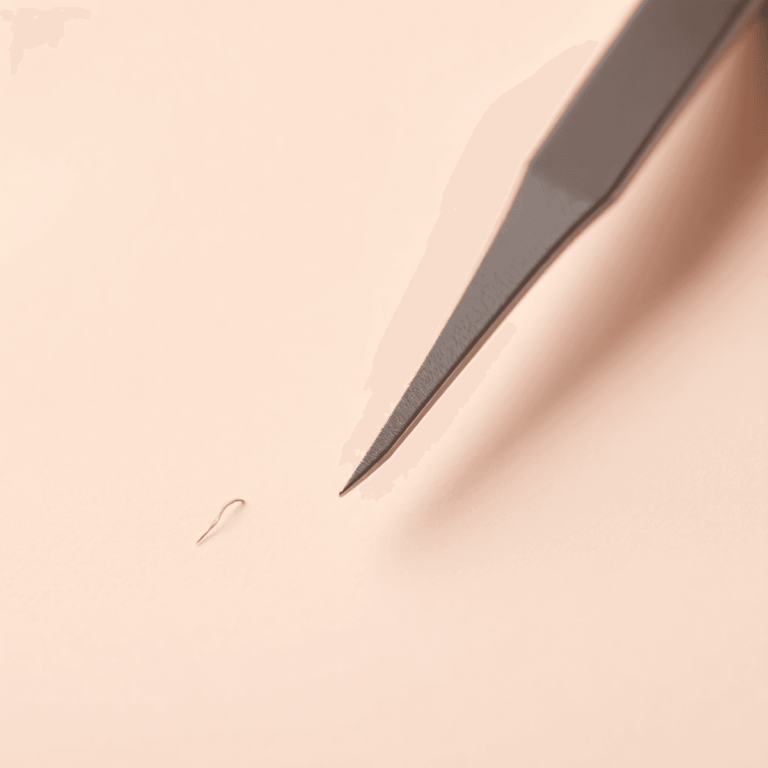Ways to Reduce Acne Scars with Home Remedies

Introduction
Acne scars can deeply affect individuals’ self-esteem and confidence, often leading to feelings of self-consciousness and frustration. Addressing these scars is essential for maintaining overall skin health and improving appearance.
Home remedies offer a safe and accessible option for those seeking ways to reduce acne scars. They provide a cost-effective alternative to medical treatments, with minimal side effects. By incorporating natural ingredients into your skincare routine, you can gradually improve the texture and tone of your skin.
Exploring how to remove old scars using these methods can be a practical approach for anyone looking to improve their skincare routine.
Understanding Acne Scars
Acne scars come in different forms, each needing specific treatments for best results. Knowing the various types of acne scars is essential if you want to find the most effective home remedies or professional treatments.
Types of Acne Scars
1. Atrophic Scars
Characteristics: These scars are generally shallow and appear as small indentations on the skin.
Subtypes:
- Ice-pick scars: Narrow, deep pits resembling puncture marks.
- Boxcar scars: Broad depressions with sharply defined edges.
- Rolling scars: Wide depressions with rounded edges, creating a wave-like appearance.
2. Hypertrophic Scars
Characteristics: Raised and bumpy, these scars do not extend beyond the original wound site.
Common Areas: Often found on the chest and back.
3. Keloid Scars
Characteristics: Similar to hypertrophic scars but extend beyond the original wound site, forming thick, irregular clusters.
Treatment Challenges: More difficult to treat due to their aggressive nature.
Factors Contributing to Acne Scar Formation
- Inflammation: Severe inflammation can damage skin tissues, leading to scar formation.
- Delayed Wound Healing: Slow healing processes increase the likelihood of scar development.
- Genetic Predisposition: Your genetic makeup can influence how your skin responds to acne lesions.
- Improper Care: Picking or squeezing pimples can exacerbate scar formation.
Understanding these factors is essential for tailoring an effective skincare routine aimed at minimizing existing scars and preventing new ones from forming. Exploring how to get rid of bacne scars or how to remove pimple scars often starts with understanding what type you’re dealing with and what caused them.
Visual Examples
Visual examples can be incredibly helpful for identifying your specific type of acne scar:
 Ice-pick scar
Ice-pick scar
 Boxcar scar
Boxcar scar
 Rolling scar
Rolling scar
 Hypertrophic scar
Hypertrophic scar
 Keloid scar
Keloid scar
Identifying the type of acne scar you have is a critical first step in choosing effective treatments. Whether you’re searching for ways on how to get rid of keloid scars or how to remove pimple scars permanently, knowing your specific condition will guide your journey towards clearer skin.
Moreover, it’s worth noting that while many people seek immediate solutions for their acne scars, understanding the underlying causes and adopting long-term skincare strategies can lead to more sustainable results.
The Role of Home Remedies in Scar Reduction
Home remedies offer several advantages when it comes to treating acne scars. They provide a natural, cost-effective alternative to medical treatments, often with fewer side effects.
Benefits of Using Home Remedies
- Cost-Effectiveness: Many home remedies use ingredients that are readily available in your kitchen or local grocery store. This makes them an affordable option for those looking to reduce acne scars without breaking the bank.
- Minimal Side Effects: Natural treatments for acne scars typically involve fewer chemicals and synthetic substances. This reduces the risk of adverse reactions such as irritation or allergic responses that can occur with some medical treatments. For instance, a report by HHS highlights the potential side effects of certain medical treatments.
- Ease of Access: You don’t need a prescription or a trip to the dermatologist to start using home remedies. They offer an accessible solution for those who prefer self-care at home.
Complementing Professional Care
While home remedies can be effective on their own, they also work well alongside professional treatments for optimal results. Combining natural methods with professional advice ensures a more comprehensive approach to scar reduction.
Synergistic Effects
Some natural ingredients may enhance the effectiveness of medical treatments. For example, using gentle exfoliants like baking soda can prepare your skin to better absorb topical medications prescribed by dermatologists. According to research from MDPI, certain natural ingredients can indeed have synergistic effects when used in conjunction with professional treatment.
Holistic Care
A blend of home remedies and professional treatments addresses both the symptoms and underlying causes of acne scars. This dual strategy can lead to more significant improvements in skin texture and appearance. The National Center for Biotechnology Information (NCBI) provides comprehensive resources on this holistic approach to scar treatment.
Maintenance and Prevention
Home remedies can serve as an ongoing maintenance routine following professional treatment. Ingredients like rosehip seed oil or turmeric can help maintain skin health and prevent new scars from forming. The NCBI also offers insights into how certain natural ingredients can aid in maintaining skin health post-treatment.
Incorporating these natural treatments into your skincare regimen allows you to take control of your skin’s healing process, making home remedies an invaluable tool in managing acne scars effectively.
Top Home Remedies to Reduce Acne Scars
Rosehip Seed Oil
Rosehip seed oil is a powerful natural remedy for acne scars. It’s extracted from the seeds of the Rosa Canina bush, mainly found in Chile.
Why Rosehip Seed Oil Works
This oil is packed with nutrients that can help improve your skin:
- Vitamins: It’s loaded with Vitamin A (retinol), which encourages new skin cell growth and smooths out rough patches.
- Essential Fatty Acids: It contains linoleic acid (omega-6) and linolenic acid (omega-3), both important for keeping your skin barrier healthy.
- Antioxidants: It has antioxidants like Vitamin C and E that fight off harmful molecules and reduce swelling.
These ingredients not only make scars less noticeable but also boost the overall health of your skin.
How to Use Rosehip Seed Oil
Here’s how you can incorporate this oil into your skincare routine:
- Cleanse Your Skin: Start by washing your face with a gentle cleanser to get rid of any dirt or makeup.
- Patch Test: Before using the oil all over, apply a small amount on a tiny area of your skin to make sure you don’t have any allergic reactions.
- Application Method: Take 2-3 drops of rosehip seed oil and gently massage it onto the areas with scars. Use circular motions to help it sink in better.
- Frequency: For optimal results, use the oil twice a day—once in the morning and once at night.
- Combine With Other Oils: If you want an extra boost, you can mix rosehip seed oil with other beneficial oils like jojoba or argan oil.
By following these steps, you can make the most out of rosehip seed oil’s scar-reducing properties.
Now, let’s move on to another effective home remedy—Black Seed Oil, which is known for its ability to lighten dark spots caused by acne scars.
Black Seed Oil
Black seed oil is known for its high thymoquinone content, which plays a significant role in addressing hyperpigmentation associated with acne scarring. Thymoquinone is a powerful antioxidant that helps even out skin tone and reduce the appearance of dark spots.
Benefits of Black Seed Oil for Acne Scars:
- Thymoquinone: This active compound helps improve uneven skin tone by reducing hyperpigmentation.
- Antioxidant Properties: Helps protect skin cells from damage and promotes healing.
- Anti-inflammatory Effects: Reduces redness and swelling, improving the overall appearance of scars.
Usage Instructions:
- Patch Test: Always start with a patch test to ensure you don’t have an adverse reaction.
- Dilution: Mix a few drops of black seed oil with a carrier oil like jojoba or coconut oil to avoid irritation.
- Application: Apply the mixture directly to the scarred areas using a cotton swab or your fingertips.
- Frequency: Use the treatment once daily, preferably at night, to allow the oil to work overnight.
Black seed oil can be a potent addition to your skincare routine when used correctly. Consistent application can lead to noticeable improvements in skin texture and tone over time. Its numerous health benefits, including its efficacy in treating acne scars, make it a valuable asset in skincare.
Baking Soda
Baking soda, known for its exfoliating and antiseptic properties, can be an effective home remedy for reducing acne scars. When used correctly, it helps remove dead skin cells and promotes new skin growth.
Benefits:
- Exfoliation: Baking soda acts as a gentle exfoliant, sloughing off dead skin cells to reveal fresher skin underneath. This process can help in minimizing the appearance of acne scars over time.
- Antiseptic Properties: Its antiseptic nature helps prevent bacterial infections that could worsen scars or lead to new acne breakouts.
Application Tips:
- Create a Paste: Mix one teaspoon of baking soda with two teaspoons of water to form a paste.
- Gentle Application: Apply the paste to the scarred areas using circular motions for about one minute.
- Rinse Thoroughly: Wash off with lukewarm water and pat your skin dry.
- Moisturize: Follow up with a moisturizer like aloe vera or rosehip seed oil to keep your skin hydrated.
Precautions:
- Patch Test: Always perform a patch test before applying baking soda to your face to check for any adverse reactions.
- Moderation is Key: Limit the use of baking soda to 2-3 times per week to avoid irritation or dryness.
- Avoid Over-exfoliation: Overuse can disrupt your skin’s natural pH balance, leading to increased sensitivity.
Incorporating baking soda into your skincare routine can be beneficial when done with care. Other home remedies like aloe vera, known for its healing properties, or honey, celebrated for its antibacterial benefits, can complement this approach for more effective results in reducing acne scars.
Turmeric
Turmeric is known for its powerful anti-inflammatory and antioxidant properties, which are great for treating both active pimples and post-acne marks. Its main ingredient, curcumin, helps reduce inflammation, fight bacteria, and promote skin healing. This makes turmeric an effective natural remedy for those looking to minimize the appearance of acne scars.
DIY Turmeric Paste Recipe
Ingredients:
- 1 teaspoon of turmeric powder
- 2 teaspoons of honey (known for its antibacterial properties)
- A few drops of lemon juice (for its citric acid content)
Instructions:
- Mix all ingredients in a bowl until you achieve a smooth paste.
- Apply the paste evenly over the affected areas.
- Leave it on for 15-20 minutes.
- Rinse off with lukewarm water and pat dry with a clean towel.
Using this DIY turmeric paste regularly can help fade stubborn scars and improve overall skin texture. Combining it with honey not only makes the paste more effective but also takes advantage of honey’s wound-healing abilities.
By adding these natural remedies to your skincare routine, you can effectively tackle scar issues while enjoying the anti-inflammatory benefits of turmeric.
Apple Cider Vinegar & Lemon Juice
Apple Cider Vinegar is known for its natural toner properties and mild exfoliant qualities. It promotes skin cell turnover, which helps in fading dark spots over time. Here’s how it works:
- Natural Toner: Apple cider vinegar balances the skin’s pH, reduces excess oil, and tightens pores.
- Mild Exfoliant: Its acetic acid content gently removes dead skin cells, promoting new skin growth.
To use apple cider vinegar effectively:
- Dilution: Mix one part apple cider vinegar with three parts water to avoid irritation.
- Application: Apply the mixture to a cotton ball and gently dab it onto the affected areas.
- Frequency: Use once daily, preferably at night.
Lemon Juice is packed with citric acid, making it an excellent natural remedy for brightening hyperpigmented areas such as pimple marks or post-inflammatory erythema.
- Citric Acid Benefits: The citric acid acts as a natural bleaching agent, lightening dark spots and evening out skin tone.
- Antioxidant Properties: Rich in Vitamin C, lemon juice combats free radicals and promotes collagen production.
For best results with lemon juice:
- Dilution: Due to its high acidity, dilute lemon juice with water (equal parts).
- Application: Apply the diluted juice using a cotton pad on the scars.
- Duration: Leave it on for 10-15 minutes before rinsing off with lukewarm water.
- Precautions: Always use sunscreen after applying lemon juice to protect your skin from UV damage.
Incorporating these remedies can complement other treatments like aloe vera, which boasts healing properties for acne scars, and honey, known for its antibacterial benefits aiding in wound healing. Combining such natural solutions offers a holistic approach to scar reduction by leveraging multiple beneficial properties of everyday ingredients.
Understanding how each element works enables you to customize your skincare routine effectively.
Coconut Oil & Tea Tree Oil
Coconut Oil
Coconut oil is famous for its moisturizing properties and ability to promote skin healing. It contains fatty acids such as lauric acid, which have antibacterial qualities, making it beneficial for managing acne and preventing new breakouts.
Benefits of Coconut Oil:
- Deep Moisturization: Coconut oil penetrates deeply into the skin, providing intense hydration. This helps in keeping the skin supple and smooth, which can reduce the appearance of scars over time.
- Antibacterial Properties: The lauric acid in coconut oil helps combat bacteria that cause acne, reducing the chances of future breakouts.
- Skin Repair: Its high vitamin E content aids in skin repair and regeneration, promoting faster healing of acne scars.
Application Tips:
- Cleanse your face thoroughly before applying coconut oil.
- Take a small amount of organic, cold-pressed coconut oil and warm it between your palms.
- Gently massage the oil onto the affected areas in a circular motion.
- Leave it on overnight for maximum absorption and wash it off in the morning.
Tea Tree Oil
Tea tree oil is well-known for its antimicrobial effects, making it effective against both active breakouts and residual discoloration from previous ones. It contains terpenes that have anti-inflammatory and antibacterial properties.
Benefits of Tea Tree Oil:
- Antimicrobial Action: Effectively kills acne-causing bacteria, helping to prevent new pimples from forming.
- Reduces Inflammation: Its anti-inflammatory properties help reduce redness and swelling associated with acne scars.
- Improves Skin Tone: Regular use can lead to a more even skin tone by lightening hyperpigmented areas.
Usage Instructions:
- Always dilute tea tree oil with a carrier oil (like coconut oil) before application to avoid irritation.
- Mix 1 part tea tree oil with 9 parts coconut oil.
- Apply the mixture directly to the scars using a cotton swab or clean fingertips.
- Leave it on for 15-20 minutes before rinsing off with lukewarm water.
Combining coconut oil’s moisturizing benefits with tea tree oil’s antimicrobial effects creates an effective remedy for reducing acne scars while also preventing new breakouts. This combination not only treats existing scars but also maintains overall skin health by keeping it hydrated and clear from bacterial infections.
Additional Tips for Scar Management Beyond Home Remedies
Maintaining a consistent skincare routine specifically tailored to minimize the appearance of existing acne scars and prevent new lesions from forming is crucial. Incorporate regular exfoliation sessions to remove dead skin cells and promote cell turnover. Consider targeted spot treatments with ingredients like retinoids or niacinamide alongside the natural remedies discussed earlier.
Lifestyle modifications also play a significant role:
- Stay Hydrated: Drink plenty of water daily to keep your skin hydrated and support overall skin health.
- Balanced Diet: Consume a diet rich in antioxidants, which are abundant in fruits and vegetables. These nutrients help repair skin damage and reduce inflammation.
- Manage Stress Levels: Engage in activities like exercise, yoga, or meditation to manage stress, which can exacerbate acne and hinder the healing process.
Combining these practices with topical interventions can significantly enhance your efforts to reduce acne scars.
When to Seek Professional Help? Understanding the Limits of Home Remedies Against Severe Scarring Cases
While home remedies offer a natural and accessible way to address acne scars, there are times when professional intervention becomes necessary. Identifying the signs that indicate a need for more advanced treatment is crucial.
Signs Indicating the Need for Professional Intervention
- Extensive Textural Irregularities: If you notice significant unevenness across the affected skin areas, this may be too severe for over-the-counter solutions.
- Significant Volume Loss: Scars that go deep into the layers beneath the epidermis due to fibrous tissue formation might require specialized treatment.
- Persistent Hyperpigmentation: Long-lasting dark spots or discoloration that do not respond to natural treatments.
- Raised or Pitted Scars: Hypertrophic (raised) or atrophic (pitted) scars resistant to topical care.
Medical Procedures for Stubborn Scars
Professional dermatologists have access to various advanced treatments aimed at targeting persistent scarring:
- Laser Resurfacing Techniques: This method uses concentrated light beams to remove damaged skin layers. Ideal for both superficial and deeper scars, laser treatments can significantly improve skin texture and appearance.
- Chemical Peels: Applying a chemical solution exfoliates dead skin cells, promoting new skin growth. Depending on the peel’s strength, it can address different scar depths.
- Microneedling: Involves creating tiny punctures in the skin to stimulate collagen production. This technique helps in filling out pitted scars and improving overall skin texture.
Consulting with a dermatologist provides personalized advice tailored to your specific condition. The goal is to achieve optimal results by combining home remedies with professional care when necessary. This balanced approach ensures you are not only treating the surface but addressing underlying issues effectively.
Final Thoughts & Recommendations For Long-Term Care
Achieving flawless skin goes beyond using home remedies. Incorporating a holistic approach is crucial for long-term care. Here are some recommendations:
1. Consistent Skincare Routine
Tailor your routine to minimize existing marks and prevent new ones. Regular exfoliation and targeted treatments containing retinoids or niacinamide can be beneficial.
2. Lifestyle Modifications
- Hydration: Drink plenty of water.
- Balanced Diet: Consume antioxidants-rich foods like fruits and vegetables.
- Stress Management: Engage in activities like exercise or yoga.
3. Professional Advice
Consult with a dermatologist for personalized guidance, especially if dealing with severe scarring.
By integrating these strategies, you enhance the effectiveness of home remedies and support your journey towards healthier, clearer skin.
FAQs (Frequently Asked Questions)
What are acne scars and how do they affect self-esteem?
Acne scars are marks left on the skin after acne lesions heal. They can significantly impact individuals’ self-esteem and confidence, often leading to feelings of self-consciousness about their appearance. Addressing these scars is important for overall skin health and personal confidence.
What types of acne scars exist?
There are three main types of acne scars: atrophic scars (depressed areas), hypertrophic scars (raised areas), and keloid scars (thick, raised tissue). Understanding these types is crucial for selecting the appropriate treatment methods.
How can home remedies help in reducing acne scars?
Home remedies offer a safe and accessible option for scar reduction. They can be cost-effective with minimal side effects, making them a great complement to professional care. Natural treatments like aloe vera, honey, and rosehip seed oil can promote skin regeneration and healing.
What are some effective home remedies for reducing acne scars?
Some effective home remedies include aloe vera for its healing properties, honey for its antibacterial benefits, rosehip seed oil for its vitamins and fatty acids, baking soda for exfoliation, turmeric for its anti-inflammatory effects, and apple cider vinegar as a natural toner. Each remedy has specific application tips to maximize effectiveness.
Are there any precautions to take when using baking soda on scars?
Yes, while baking soda can be beneficial due to its exfoliating properties, it is essential to use it correctly to avoid irritation or dryness. Always perform a patch test before applying it widely on the skin.
What lifestyle changes can help prevent further breakouts and manage existing scars?
Maintaining a consistent skincare routine tailored to minimize existing marks while preventing new breakouts is crucial. This includes regular exfoliation sessions, targeted spot treatments with effective ingredients, and adopting healthy lifestyle habits that support skin health.










